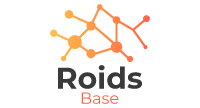- Your cart is empty
- Continue Shopping
New Anti-Inflammatory Drug: Reduces Lipoprotein Levels as Well
Recently released rescue phase 2 clinical trials show that the humanized monoclonal antibody ziltivikimab targeting IL-6 ligand has many effects. It can reduce the levels of various biomarkers of inflammation and thrombosis in patients with high risk of atherosclerosis. The level of C-reactive protein can be reduced by 92%, and lipoprotein (a) can also be reduced.
The study showed that in high-risk ASCVD patients with moderate to severe chronic kidney disease and elevated C-reactive protein levels, the median high-sensitivity C-reactive protein levels were reduced by 77%, 88% and 92% after treatment with ziltivikimab 7.5 mg, 15 mg and 30 mg respectively for 12 weeks, compared with only 4% in the placebo group.
Figure 1 Changes of median high sensitivity C-reactive protein levels after treatment with ziltivikimab 7.5 mg, 15 mg and 30 mg for 12 weeks
In addition, ziltivikimab reduced hs CRP levels in a dose-dependent manner in patients with at least 50% hs CRP reduction and less than 2 mg / L during treatment.
In addition to the decrease of hs CRP, the levels of fibrinogen, haptoglobin, serum amyloid A and secretory phospholipase A2 in 7.5 mg, 15 mg and 30 mg ziltivikimab were decreased in a dose-dependent manner compared with placebo.
Different doses of ziltivikimab also reduced the level of lipoprotein (a) by 16%, 20% and 25% respectively. However, other IL-6 inhibitors increased the lipid level of atherosclerosis.
The ratio of apoB to ApoA did not change compared with placebo.
The flaw is that severe infections were observed in the study, with 5 cases in the placebo group and 11, 5 and 3 cases in the ziltivikimab 7.5 mg, 15 mg and 30 mg groups, respectively.
However, it was generally well tolerated without affecting the ratio of total cholesterol to high-density lipoprotein cholesterol, serious injection site reaction, persistent grade 3 or 4 neutropenia or thrombocytopenia, and transaminase level not exceeding 3 times of the upper normal limit.
Previously, in the Cantos study, IL-1 was targeted β( IL-1 β) The humanized monoclonal antibody canakinumab can reduce the level of hs CRP by 39% and the risk of adverse cardiovascular events by 15% ~ 20%.
However, ziltivekimab decreased hs CRP more significantly than canakinumab. Is ziltivekimab more effective in reducing adverse cardiovascular events?
The ongoing Zeus trial may be able to answer this question. This study aims to evaluate the effect of ziltivikimab 15 mg on cardiovascular outcome in more than 6000 patients with chronic kidney disease.
The rescue study was a randomized, double-blind, multicenter phase 2 clinical trial involving 264 adult patients with moderate to severe chronic kidney disease and high-sensitivity C-reactive protein of at least 2 mg / L.
The median age of the patients was 66 years old, and 2 / 3 of them were taking statins. The median estimated GFR was 38 ml / min / 1.73 m2, the median hs CRP level was 5.7 mg / L, and the median IL-6 level was 5.6 pg / ml.
264 patients were randomly divided into three dose groups (7.5 mg, 15 mg and 30 mg) and placebo group.




